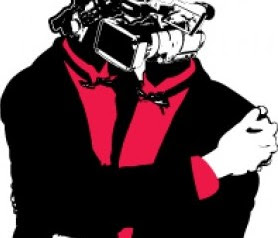Anyway, I really wish I could write about more than just how school and karate are going but, really, nothing else much happens aside from that. So, seeing as I can't help it, I might as well keep on =P...
Right now school's about a 70/30 balance between practical, "let's examine how to properly conduct a class" lessons and more theoretical, "let's discuss some of the issues in the classroom" lectures. The former includes stuff like giving mini-lessons in front of the class (which are video taped) and the latter involves quite a lot of discussion.
One of these discussion classes is a course on social justice and focusses on the topic of discrimination and oppressiveness and how, as teachers, we could or would deal with them, both internally with our own views and externally with our students.
 As one might imagine, a class that focusses solely on topics like racism, sexuality, or class often result in some rather heated discussions. But last week we had a guest speaker from Out In Schools, a registered charity and a branch of the Out In Film society (which organizes the annual Vancouver Queer Film Festival) that attempts to educate students about the issues that surround homophobia and discrimination (and the wider theme of bullying, be it due to race, sex, class, etc.) through film.
As one might imagine, a class that focusses solely on topics like racism, sexuality, or class often result in some rather heated discussions. But last week we had a guest speaker from Out In Schools, a registered charity and a branch of the Out In Film society (which organizes the annual Vancouver Queer Film Festival) that attempts to educate students about the issues that surround homophobia and discrimination (and the wider theme of bullying, be it due to race, sex, class, etc.) through film.It was a really interesting look at some of the resources available for victims of bullying as well as a great chance to see some eye openingly short films made by students. Some included a short made by some grade 5's about the still-common usage of the term "That's so gay" and another was about two students in a high school in a very conservative rural town in America who were the victims of bullying due to their sexual orientation.
It's particularly eye opening because not only are many of these issues not given enough exposure (I mean, sometimes you watch it and think "Seriously?? Do people still think like that??"), but that what we might deem as "modernized" or "globalized" thinking isn't nearly as inclusive as we imagine. Coupled with the fact that while many are perfectly happy to nod their head in agreement that certain social values need changing, few are truly comfortable discussing them at length.
Aboriginal issues suffer from the same, if not worse, stigma. The topic of residential schools came up and it's something that's extremely touchy to discuss. What's worse than the actual topic itself is how, in Canada, discussing Aboriginal issues has become such a conversational faux pas that the discussion never even gets off the ground. And how are we supposed to confront the topic if it's nearly impossible to comfortable bring it up in the first place??
So despite the required reading for the class, it's incredibly interesting to have that class foster a space where there is less fear of tackling the truly difficult issues. Of course, the trap is that many end up trying to think of ways to change the world when, in reality, we should be trying to think about these issues and how we interact with them. And, be it as teachers or citizens, move towards changing our daily spaces (work, home, etc.) to be conscious of how we're treating the people around us.
Lastly-
私の友達がブログに日本語の場合がほしかったと言ったけど、全部を翻訳できないかも。。。 =P 少なくとも日本語入ったね haha

No comments:
Post a Comment